|
by James DeChene
The General Assembly returned from Easter Break this week and worked on a few bills related to the business community. HB310, a voluntary program to be established by the Secretary of State’s office for companies to certify their sustainability programs, was not heard, but will likely reappear soon. HB 170 (State Chamber supports), which establishes a refundable tax credit for qualified angel investors and companies, has passed the House, and was released from Senate Banking, Commerce and Insurance Committee yesterday. Also yesterday, Governor Carney signed HS1 for HB287 (State Chamber supports), which renames the modified diploma individuals with intellectual disabilities receive upon graduating from high school so they can check the “diploma” box on job applications. This effort, was in part, driven by the inability of current high school graduates to claim they have a high school diploma due to how it’s named. The name change has no impact on the course work required to graduate. Next week, the General Assembly is back in session. The State Chamber is watching a number of bills, and will report on activity, if any, next week.
0 Comments
by Mark DiMaio
Last year we asked Chamber members to participate in a survey for input about obstacles to their business growth. We received nearly 100 individual responses to our question about specific suggestions on what Delaware should do to improve its economy. Listed below are four areas that respondents mentioned most often, along with ways the Chamber is working to advance Delaware’s economic health. Improve schools and infrastructure
Balance the state budget with new revenue sources and cut government spending
Encourage entrepreneurship and a diverse economy - strong business climate to attract new business
Streamline land use and permitting process – less regulation overall
By Mark DiMaio
In 2017, we invited Chamber members to participate in a survey in part to gauge their view of obstacles to their business growth. Listed below are the top five, along with ways the Chamber is addressing them. 1. Cost of Employee Health Care The Chamber recognizes the growing problem surrounding health care costs.
2. Lack of Qualified Applicants We are actively engaged, along with many of our members, with the Pathways to Prosperity program. Delaware Pathways programs are a set of curriculum focused on a specific industry-based “pathway,” paired with opportunities to gain workplace experience while still in high school, graduate with a head start on a college degree, or gain qualifications needed to go to work immediately. The program is a unique collaboration of school districts, businesses, higher education, and national advisory partners that represent a new way to do school. The Delaware Manufacturing Association (a Chamber affiliate) members have actively participated in the Manufacturing Engineering Technology and Manufacturing Production & Logistics pathways. Delaware Pathways will host its 4th Annual Conference on March 21. 3. Concerns with Crime & Safety The Chamber supports the efforts of elected officials and their staffs to reduce crime in Wilmington and across the state.
4. Concerns About Local Schools Improving education outcomes is a key factor in developing a skilled workforce and attracting new business to Delaware.
5. Cost of Permitting and Regulation Compliance
by Mark DiMaio
In 2017, we invited Chamber members to participate in a survey to gauge their view of Delaware's economic health, and provide input on policy priorities. Listed below are the top four, along with ways the Chamber is addressing them. 1. Economic Development The Chamber is dedicated to promoting an economic climate that strengthens the competitiveness of Delaware businesses and benefits citizens of the state.
2. Cost of Health Care The Chamber recognizes the growing problem surrounding health care costs.
3. Government Spending We will continue to advocate for structural changes to Delaware’s budget. Delaware needs fiscal policies that foster business growth and advance the state’s long-term economic future.
4. Education Reform (K-12) Improving education outcomes is a key factor in developing a skilled workforce and attracting new business to Delaware.
by Mark DiMaio
The future is now for expanding the state’s manufacturing sector. While manufacturing jobs in Delaware continue to increase at a modest pace, building blocks have been put into place to spring Delaware forward. Delaware manufacturing will need to combine organic growth with the long-term development of heavier industries in abandoned and underutilized locations. The modernized Coastal Zone Act should propel new investment in Delaware’s manufacturing sector. In order for Delaware manufacturing to flourish, a strong and skilled workforce in essential. Many Delaware manufacturers are working with Delaware Technical Community College’s workforce training department to develop future employees to handle the rigors of 21st century advanced manufacturing. This advanced training is needed to develop skilled employees to replace older workers who are retiring. In addition to instruction in subjects such as computer programming and robotics, training also focuses on developing better ‘soft’ skills, such as leadership, teamwork and problem-solving, in order to compete in the modern workplace. The Delaware State Chamber of Commerce and the Delaware Manufacturing Association invite you to learn more the about the future of Delaware Manufacturing at the Spring Legislative Brunch & Manufacturing Conference. Legislators returned to Dover this week. Among items passed, the General Assembly included extending reporting deadlines for the Taskforces on the Legalization of Recreational Marijuana and on School Redistricting. Expect reports to come later in the session.
Also passed this week was a bill creating a committee dedicated solely with how Grant in Aid funding will be administered in the future. Calling for the establishment of a review process, and creating metrics to measure success, the committee will work in conjunction, but separately from JFC to distribute Grant in Aid. Next week will be Governor Carney’s State of the State Address on January 18. Earlier this fall, the Delaware State Chamber of Commerce membership participated in a survey on their view of Delaware’s economy, key issues, and polices impacting business growth. The survey results will play a key role in the Chamber’s 2018 issue and advocacy strategy, including a continued focus on creating a successful environment for small businesses. We are listening to you as we build our advocacy agenda for 2018, which will include your top policy priorities:
As we build on the successes of 2017, your continued engagement is vital to advancing a prosperous business climate and attracting new enterprises to the state. A special thank you to members who took the survey. Please take a few minutes to review the survey results by clicking here. Maybe it’s a continuation of my turkey coma, but I saw a lot of positive things happening this week in and around Delaware you may have missed. Chamber member, and Taste of Delaware participant, Waggies by Maggie & Friends, a Wilmington nonprofit dog treat company that employs people with intellectual disabilities, has won the $10,000 grand prize in M&T Bank’s first Understanding What’s Important Business Challenge. Maggie’s has been a great friend of the Chamber, and everyone here is so pleased at their award. Congrats!
The announcement of a sports arena to be built by the Riverfront, with a connecting bridge to area attractions like Iron Hill and Frawley Stadium, is huge for Wilmington. Above and beyond what it can bring for economic development, it’s a major quality of life project for an area of the City that desperately needs one. Kudos to Governor Carney, Mayor Purzycki, and BPG for working together to bring this project to Delaware. Speaking of Governor Carney, you may have read about the release, a bit early, of his Wilmington schools plan. While the plan will undergo a number of changes, what struck me was the Governor taking the time to visit residents of Wilmington in person, urging them to participate in the process and to educate them about what his plan will mean for Wilmington kids and families. Door knocking can be hard, and at times even unpleasant, but it’s also one of the best ways to sell your message. Color me impressed. Lest you think I’ve lost my Grinch-esque ways, let me end by saying we’re following chatter that there’s an effort afoot to build support in order to increase Delaware’s Renewable Portfolio Standard to 50%, with an 8% carve out for solar generation. Currently, Delaware’s Renewable Portfolio Standards (RPS) are established by the Renewable Energy Portfolio Standards Act (REPSA), which provides that utilities procure an increasing percentage of their electricity from renewable resources, leading up to 25% of energy derived from renewable sources by 2025. Obviously we’ll be watching this closely.  by Mark DiMaio Virginia “Jinni” Forcucci, a high school English teacher from the Sussex Technical School District, is Delaware’s 2018 State Teacher of the Year. Governor John Carney made the announcement at the annual banquet honoring the 20 district and charter teachers of the year at Dover Downs Hotel and Conference Center. Virginia “Jinni” Forcucci became an educator because of her love of literature, but her students are the inspiration for her 20-year career. As a teacher, Forcucci works to encourage her students to understand all sides of an argument before formulating a perspective, and to seek common ground as they search for a resolution. Ms. Forcucci said she found what best motivates learning is demanding content, freedom to explore and academic discourse. With this discovery, she redesigned her curricula, enhancing rigor and relying more on student-driven discussions. Even her most resistant learners responded. Ms. Forcucci inherits from outgoing Teacher of the Year Wendy Turner the responsibility of representing all Delaware teachers. She will also represent Delaware in the National Teacher of the Year Program, a project of the Council of Chief State School Officers. By action of the Delaware General Assembly, she will receive a $5,000 grant to use for the educational benefit of her students, as well two personal grants totaling an additional $5,000. Superstar in Education winner William Penn High School hosted elected officials, faculty and staff, students and parents, and other community guests, at Historic Penn Farm on Tuesday, October 3. Serving food made with ingredients from their farm, the school held a reception in the barn at Penn Farm, where the school’s community supported agriculture (CSA) program, Farm to School, is housed. Following the reception, a pollinator field, made possible with financial support from DuPont, was celebrated with a wildflower seed toss.
The pollinator field, along with a transparent bee hive shed with a transparent viewing wall, was presented to the school by way of a $5,000 grant from DuPont. DuPont surprised the school and event attendees with the check at the Chamber’s annual Superstars in Education Awards ceremony on May 8, 2017, where William Penn High School was being recognized for their Farm to School program. It is DuPont’s hope that the hive will provide a save learning environment for apiary studies, while expanding on current honey harvesting operations. The pollinator field will allow students an interactive learning experience in horticulture, as well as serve as local point of interest for the community. The field, dedicated as ‘Mrs. Pickard’s Field of Dreams’, was named for the school’s agriculture teacher, Kathleen Pickard. DuPont was impressed with the winning application’s demonstration of collaboration with multiple organizations – William Penn High School and the Colonial School District, Delaware Greenways and the Historic Penn Farm, University of Delaware, and New Castle County Commons – and even collaboration within the school, as the program engages students from agricultural, business, environmental and culinary disciplines. Additionally, PJ Simon, Manager, Academic Outreach (North America), says, “This program checks many boxes. The students are learning skills in an oftentimes overlooked trade; instruction is hands-on and engaging, resulting in increased attendance and test scores; students gain a clear understanding of potential career paths; and the program has even reinvigorated the careers of the teachers.” |
Archives
April 2024
Categories
All
|
|
Copyright Delaware State Chamber of Commerce, Inc. All Rights Reserved.
PO Box 671 | Wilmington DE 19899 Phone: (302) 655-7221 | dscc@dscc.com | sitemap |
|

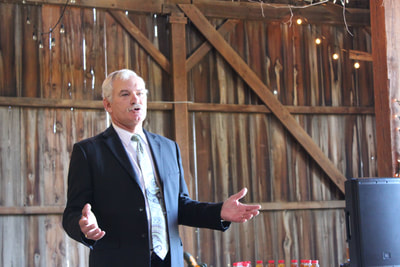
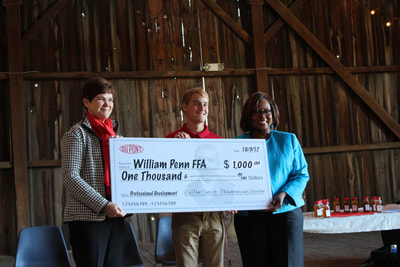
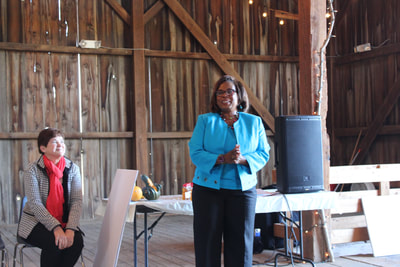
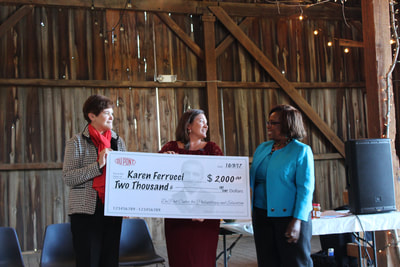
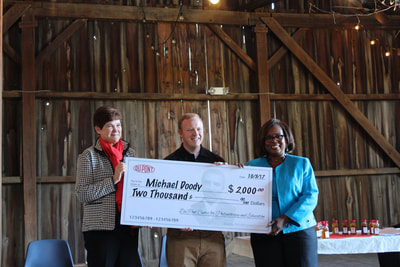
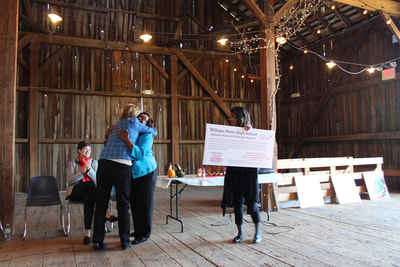
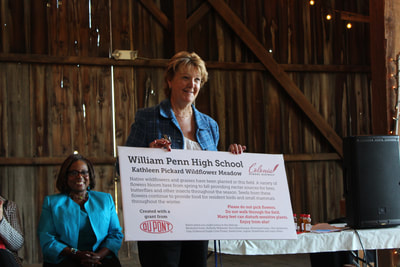
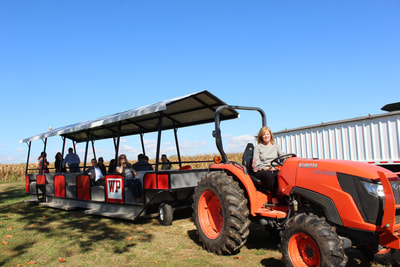
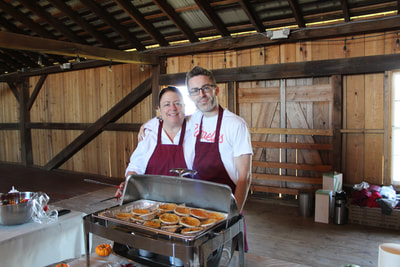

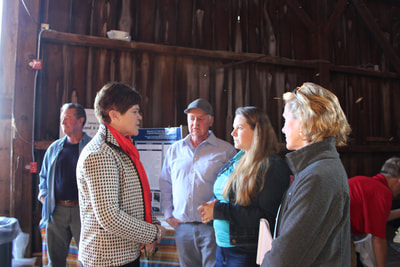
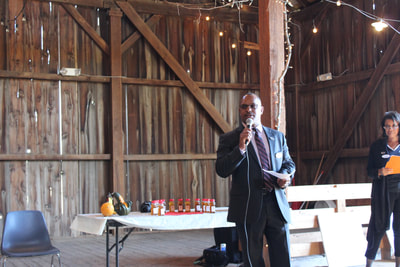
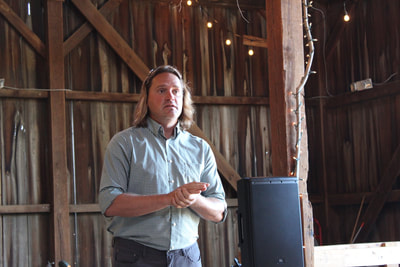
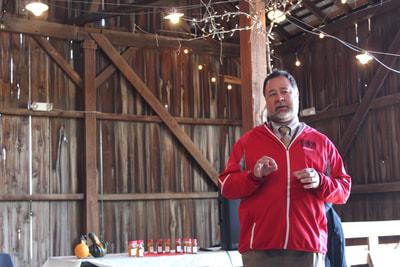
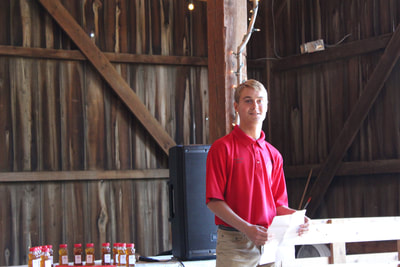
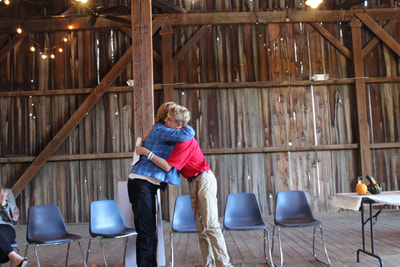
 RSS Feed
RSS Feed